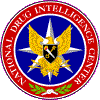ARCHIVED
![]() To Contents
To Previous Page To Next Page
To Publications Page To
Home Page
To Contents
To Previous Page To Next Page
To Publications Page To
Home Page

|
National Drug Intelligence Center Massachusetts Drug Threat Assessment Update April 2002 CocaineCocaine poses the second greatest drug threat to Massachusetts. Cocaine is frequently abused and often associated with violent crime. According to the 1999 National Household Survey on Drug Abuse, 2.2 percent of Massachusetts residents report having abused cocaine at least once in the past year compared with 1.7 nationwide. Cocaine-related treatment admissions to publicly funded facilities decreased from 12,309 in 1994 to 5,992 in 1999, according to TEDS. (See Table 1 in Heroin section.) Despite this decrease, the number of cocaine-related treatment admissions per 100,000 population (116) in Massachusetts exceeded the national number per 100,000 (104) in 1999. According to DAWN mortality data, in Boston cocaine was a factor in 118 drug-related deaths in 2000, virtually the same as 1999 with 117 drug-related deaths. Only heroin was a factor in more drug-related deaths in Boston in 2000. (See Table 2 in Heroin section.) Powdered cocaine and crack cocaine are readily available in Massachusetts. According to FDSS data, federal law enforcement officials seized 72.3 kilograms in FY1997, 88.0 in FY1998, 208.5 in FY1999, and 49.1 kilograms in FY2000. U.S. Sentencing Commission data indicate that 64.8 percent of all drug-related sentences in Massachusetts in FY2000 were cocaine-related compared with 44.2 percent nationwide. According to DEA, in the first quarter of FY2002, powdered cocaine sold for $24,000 to $32,000 per kilogram and $50 to $100 per gram. Powdered cocaine purity levels ranged from 30 percent to 90 percent at the wholesale level and 20 percent to 70 percent at the retail level. Crack cocaine sold for $900 to $1,600 per ounce and $10 to $20 per rock. Crack cocaine purity levels ranged from 30 percent to 90 percent. Colombian and Dominican criminal groups are the principal transporters of cocaine into Massachusetts. Colombian and Dominican criminal groups based in Massachusetts transport cocaine into the state from New York City in private or rental vehicles. The Greater Boston area, Holyoke, Springfield, and Worcester serve as distribution centers that supply cities throughout Massachusetts and in New Hampshire and Vermont. Various criminal groups and gangs distribute cocaine throughout the state. Colombian and Dominican criminal groups and, to a lesser extent, Puerto Rican criminal groups are the dominant wholesale distributors of powdered cocaine in Massachusetts. African American, Asian, Caucasian, Dominican, Jamaican, Mexican, Puerto Rican, and other Hispanic criminal groups and gangs distribute cocaine at the retail level.
|
End of page.